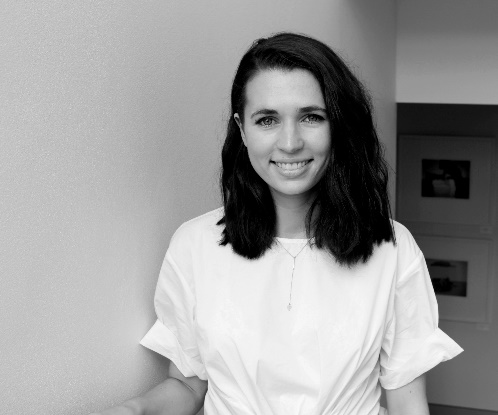Who we are
Louise Arseneault, Professor of Developmental Psychology

Louise Arseneault’s research focuses on the study of harmful behaviours such as violence and substance dependence, their developmental origins, their inter-connections with mental health and their consequences for victims. She is taking a developmental approach to investigate how the consequences of violence begin in childhood and persist to mid-life, by studying bullying victimisation and child maltreatment. Louise also studies the impact of social relationships including social support, loneliness and social isolation on mental health. Her research aims are to answer questions relevant to psychology and psychiatry by harnessing and combining three different research approaches: developmental research, epidemiological methods and genetically sensitive designs, incorporating social and biological measurements across the lifespan.
Louise completed her PhD in biomedical sciences at the University of Montreal and moved to the UK for post-doctoral training at the Social, Genetic and Developmental Psychiatry Centre. She has been working with well-known longitudinal cohorts such as the
For five years, Louise was the Economic and Social Research Council (ESRC) Mental Health Leadership Fellow during which she provided intellectual leadership and strategic advice in the priority area of mental health. It was a broad agenda including engaging research communities, promoting collaborations, advocating for mental health research, championing the co-design and co-production of research and providing advice to the ESRC and other research councils. She provided advice on how social science research can best address the challenges that mental health poses for our society, communities and individuals.
In 2022-2023, Louise led the Landscaping International Longitudinal Datasets project, commissioned by the Wellcome Trust and in collaboration with MQ Mental Health Research, the Open Data Institute, the Centre for Global Mental Health and DATAMIND. The Landscaping project involved a worldwide search for longitudinal datasets with potential for transformative mental health research. Following its completion, Louise has been leading the subsequent creation and development of the Wellcome-funded Atlas of Longitudinal Datasets platform.
Bridget Bryan, Postdoctoral researcher

Bridget’s research examines experiences of loneliness and mental health in the workplace using qualitative and quantitative methods. She joined the team in July 2018 to review the mental health measures in British longitudinal studies and assist in the development of the Catalogue. Before joining the project, she completed a Bachelor of Arts (Honours) at the University of Sydney and a Master of Science in Sociology at the University of Oxford. Previously, Bridget has worked in research focusing on workplace mental health and the Australian forensic mental health system at the University of New South Wales, the Mental Health Commission of NSW and the University of Oxford. She also worked with the team on the Landscaping International Longitudinal Datasets project in 2023. In the summer of 2024, Bridget completed her PhD, focused on loneliness and social isolation in the workplace. She now works as a postdoctoral researcher on the Atlas of Longitudinal Datasets.
Elena Triantafillopoulou, Research assistant

Elena joined the team in March 2022 to assist with the ongoing maintenance and expansion of the mental health measures, studies, and topics included in the Catalogue. Prior to joining the group, Elena completed her graduate studies in Developmental Psychology and Psychopathology at King’s College London (MSc with distinction) and before then, her undergraduate studies in Biology and Psychology at the University of Central Florida (BSc cum laude). Her research interests include the development of mental health conditions following early life and/or complex trauma and the restoration of wellbeing through treatment. Elena also worked on the Landscaping International Longitudinal Datasets project, focusing on the Americas regions. She has since supported the formation and development of the Atlas of Longitudinal Datasets, and now splits her time between the Catalogue and the Atlas.
Malaika Okundi, Research assistant

Malaika joined the team in June 2022 to assist with expanding the Catalogue to include new studies and improve its accessibility and usefulness to users beyond mental health researchers. Before joining the Catalogue, Malaika completed her Bachelor of Science in Global Health and Social Medicine (Neuroscience) at King’s College London. She also works on the Transmission of experiences of Racism, Anxiety and Depression in families (TRADE) Project, studying the relationship between parent experiences of racism and child mental health. Her research interests include interspecies approaches to medicine, biotechnology and its effects on society, data science and the mental health of populations in low- and middle-income countries. Malaika also worked on the Landscaping International Longitudinal Datasets project, focusing on the Africa, Middle East & Asia regions, and now leads the dissemination for the Catalogue alongside working on the formation and development of the Atlas of Longitudinal Datasets.
Daniel Yu, Research assistant

Daniel rejoined the team in July 2024, having worked on the Catalogue from September 2022 to September 2023 as a placement student during the academic year and as a research assistant over the summer. Prior to rejoining, he completed a Bachelor of Science (Honours) in Psychology at the University of Bath. His role included ensuring the accuracy of existing reviews of studies, adding information on new data collections of existing studies, and beginning the addition of linked cohorts to the Catalogue. Daniel also worked on the Landscaping International Longitudinal Datasets project, and now splits his time between the Catalogue and the Atlas of Longitudinal Datasets.
Alumni
Barbara Maughan, Emeritus Professor of Developmental Epidemiology

Barbara Maughan’s research focuses on psychosocial and biological risks for mental health problems in childhood and the long-term impact of early emotional/behavioural difficulties and early adverse experiences for health and wellbeing later in life. She has undertaken epidemiological and longitudinal studies of a range of child and adolescent difficulties, including conduct problems and antisocial behaviour, severe reading problems, and depression. She has studied individual, family, school and broader societal risk factors. She uses a combination of research strategies centring on epidemiological and longitudinal methods; she has also used natural experimental designs to highlight the impact of environmental risks.
Barbara came into research from a background in social work; she completed her PhD while working at the Institute of Psychiatry and has since worked in both the MRC Child Psychiatry Unit and the Social, Genetic and Developmental Psychiatry Centre at King’s College London. She has helped conduct the adult follow-up phases of epidemiological samples in inner London and the Isle of Wight and has also made extensive use of secondary analysis of data from the British birth cohort studies in conducting her research. Barbara supported the formation of the Catalogue.
In early 2023, Barabara became Emeritus Professor of Developmental Epidemiology at the Institute of Psychiatry, Psychology and Neuroscience at King’s College London.
Maria Jose Rodriguez Pinzon, Undergraduate placement student & research assistant

Maria Jose worked on the Catalogue as a placement student during the academic year and as a research assistant for part of the summer. Her role included ensuring the accuracy of existing reviews of studies and their mental health measures, and adding studies such as Imagine ID. Maria Jose also contributed to the formation and development of the Atlas of Longitudinal Datasets. She has now returned to Cardiff University to finish her undergraduate Psychology degree.
Hannah Lewis, Undergraduate placement student & research assistant

Hannah joined the Catalogue team as part of her placement year and continued working over the summer as a research assistant. Her role within the team was to support the ongoing expansion of the Catalogue by updating and adding new studies through data review and documentation analysis, including CRIS. She also supported the tracking of impact and engagement to the Catalogue. Hannah also contributed to the formation and development of the Atlas of Longitudinal Datasets. She has now returned to Loughborough University to complete the final year of her undergraduate Sport & Exercise Psychology degree.
Georgia Andrews, Undergraduate placement student & research assistant

Georgia worked on the Catalogue from September 2021 to September 2022 as a placement student during her academic year and as a research assistant over the summer. During her time on the team, Georgia added several new studies to the Catalogue, oversaw the expansion of the FAQ page, and led the addition of personality and temperament measures to the Catalogue. Georgia graduated with First Class Honours in undergraduate psychology from Cardiff University in July 2022.
Lily Strange, Research Assistant

Lily worked on the Catalogue from 2020 to 2022. During her time on the team, Lily added new studies to the Catalogue, including ALSPAC, led the addition of information about physical health data, and added social care filters to the Catalogue. Before joining the team, Lily completed her Bachelor of Science (Hons) in Psychology at Goldsmiths, University of London, before completing her MSc in Developmental Psychology and Psychopathology at King’s College London. Previously, she worked as a research assistant on projects focusing on children’s behavioural and socio-emotional adjustment in relation to parenting and family relationships. Lily now works as a research assistant at the Centre for Maternal & Child Health Research at City University of London.